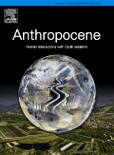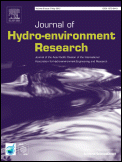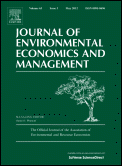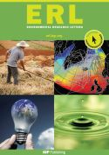
Earths Future
Scope & Guideline
Transforming Research into Action for a Better Tomorrow
Introduction
Aims and Scopes
- Climate Change Impacts and Adaptation:
Research focusing on the effects of climate change on various ecosystems, communities, and sectors, including agriculture, water resources, and urban environments. This area emphasizes understanding vulnerabilities and developing adaptation strategies. - Sustainable Resource Management:
Studies aimed at optimizing the use of natural resources, including water, soil, and energy, to ensure sustainability. This includes exploring innovative practices and technologies that can mitigate environmental degradation. - Interdisciplinary Approaches to Environmental Challenges:
Encouraging collaborations across disciplines to address complex environmental issues. This includes integrating social sciences, economics, and natural sciences to provide holistic solutions. - Modeling and Projections of Environmental Changes:
Utilizing advanced modeling techniques to project future climate scenarios and their potential impacts on ecosystems and human systems. This includes assessments of risks and uncertainties associated with climate change. - Human-Nature Interactions:
Investigating the dynamic relationships between human activities and natural systems, focusing on how these interactions influence environmental outcomes and societal resilience.
Trending and Emerging
- Climate Justice and Equity:
A rising trend in research addressing the social dimensions of climate change, focusing on equity, justice, and the disproportionate impacts on marginalized communities. - Nature-Based Solutions:
An increasing emphasis on leveraging natural processes and ecosystems to address climate challenges, such as using wetlands for flood mitigation or reforestation for carbon sequestration. - Technological Innovations in Climate Mitigation:
Research exploring new technologies and strategies for reducing greenhouse gas emissions, including renewable energy advancements and carbon capture techniques. - Systemic Risk and Resilience Frameworks:
A growing focus on understanding systemic risks associated with climate change and developing frameworks that enhance resilience at individual, community, and institutional levels. - Stakeholder Engagement and Participatory Approaches:
Emerging interest in involving diverse stakeholders in climate adaptation and mitigation planning, recognizing the importance of local knowledge and collaborative decision-making.
Declining or Waning
- Traditional Agricultural Practices:
Research on conventional agricultural methods has decreased as the focus shifts towards sustainable and innovative agricultural practices that address climate change and food security. - Local Environmental Policies:
There appears to be a diminishing emphasis on localized environmental policy studies, as the journal increasingly prioritizes broader, global perspectives and interdisciplinary approaches. - Historical Climate Analysis:
The trend towards modeling and projecting future scenarios has overshadowed studies focusing on historical climate data analysis, which are less aligned with proactive climate adaptation strategies. - Single-Disciplinary Studies:
Research that does not integrate multiple disciplines is becoming less common, as the journal favors interdisciplinary approaches that combine insights from various fields to tackle complex environmental challenges. - Static Risk Assessments:
There is a waning interest in static or one-time risk assessments, with a growing preference for dynamic assessments that incorporate ongoing changes and uncertainties in climate and human systems.
Similar Journals

All Earth
Navigating the Complexities of Earth and SocietyAll Earth is an esteemed open-access journal published by Taylor & Francis Ltd, dedicated to multidisciplinary research in the fields of Earth and Planetary Sciences, Global and Planetary Change, as well as Management, Monitoring, Policy, and Law. Since its inception in 2021, All Earth has swiftly positioned itself in the academic community, achieving notable rankings such as Q2 in Earth and Planetary Sciences and Q3 in related fields, showcasing its commitment to high-quality interdisciplinary scholarship. Researchers and professionals can benefit from its accessible content, which contributes to the ongoing discourse on critical environmental issues and innovative solutions for sustainable development. The journal is based in the United Kingdom and continues to be a vital source of information and inspiration for students and scholars aiming to tackle the pressing challenges of our planet through rigorous scientific inquiry and policy analysis.

Journal of Earth System Science
Transforming Understanding of Earth SystemsThe Journal of Earth System Science, published by Indian Academy of Sciences, is a pivotal resource in the field of Earth and Planetary Sciences, boasting an impressive Q2 ranking in 2023. Since its inception in 2005, this journal has been dedicated to advancing our understanding of complex Earth systems, publishing high-quality research that spans across various disciplines within the geosciences. With an E-ISSN of 0973-774X and a commitment to Open Access, it makes cutting-edge scientific insights widely available to researchers and professionals alike. The journal serves as a vital platform for innovative research and critical discussions, making significant contributions to the global scientific community, particularly as we navigate the challenges posed by climate change and environmental sustainability. Located in Bangalore, India, it continues to foster international collaboration and discourse among scholars, reinforcing its role as an essential publication within the Earth and Planetary Sciences domain.

Anthropocene
Exploring the Human Impact on Earth SystemsAnthropocene, published by Elsevier Science Ltd, is a leading journal dedicated to the interdisciplinary study of the Anthropocene epoch, focusing on the profound impacts of human activity on Earth systems and ecosystems. With an impressive impact factor reflected in its Q1 rankings in Earth and Planetary Sciences and Ecology, as well as a solid standing in Global and Planetary Change, this journal is a vital resource for researchers, professionals, and students striving to understand and address the pressing environmental challenges of our time. Since its inception in 2013, the journal has been committed to publishing high-quality, peer-reviewed articles that stimulate critical discourse and inspire innovative solutions to complex ecological issues. Although not an open-access journal, Anthropocene provides extensive access options through institutional subscriptions, making its significant research readily available to the academic community. Based in the United Kingdom, the journal serves as a cornerstone for scholarship in a rapidly evolving field, bridging gaps across disciplines and encouraging interdisciplinary collaboration for a sustainable future.

APPLIED ECOLOGY AND ENVIRONMENTAL RESEARCH
Fostering dialogue and collaboration in applied ecological research.Applied Ecology and Environmental Research is a distinguished journal published by ALOKI Applied Ecological Research and Forensic Inst Ltd, located in Hungary. Since its inception in 2003, the journal has provided a pivotal platform for the dissemination of innovative research and discussions pertaining to applied ecology and its intersection with environmental sciences. With its ISSN 1589-1623 and E-ISSN 1785-0037, the journal boasts a respectable presence, achieving a Q3 ranking in Agronomy and Crop Science and a Q4 ranking in Ecology, Evolution, Behavior, and Systematics as of 2023. This reflects its commitment to publishing high-quality research that is vital for advancing knowledge in these fields. While it primarily operates under a subscription model, authors and institutions are encouraged to contribute meaningful research that sparks dialogue and fosters collaboration among a diverse range of stakeholders in ecological research. Researchers, professionals, and students alike will find valuable insights and contributions that address contemporary environmental challenges and promote sustainability. Join the community of scholars who are shaping the future of ecology and environmental research through this impactful publication.

Journal of Hydro-environment Research
Empowering researchers to tackle pressing environmental challenges.The Journal of Hydro-environment Research, published by Elsevier, serves as a leading platform for advancing knowledge in the fields of civil and structural engineering, environmental chemistry, and water science. With a robust impact factor reflecting its Q2 category ranking across various disciplines—including Environmental Engineering and Management, Monitoring, Policy and Law—it emphasizes high-quality research that addresses pressing environmental challenges. Embracing a global perspective, the journal explores interdisciplinary approaches to water and environmental management, thus empowering researchers and professionals to innovate and implement effective solutions. Since its inception in 2007, the journal has continually evolved, with its scope expanding into emerging areas pertinent to water science and technology. The journal is indexed in esteemed databases, ensuring wide dissemination and accessibility of published works, although it does not currently operate on an open access model. Addressing the intricate interplay between human activities and water resources, the Journal of Hydro-environment Research is quintessential for those dedicated to fostering sustainable practices and enhancing our understanding of hydro-environmental systems.

JOURNAL OF ENVIRONMENTAL ECONOMICS AND MANAGEMENT
Advancing Knowledge at the Intersection of Environment and Economics.JOURNAL OF ENVIRONMENTAL ECONOMICS AND MANAGEMENT, published by Academic Press Inc Elsevier Science, stands as a leading platform for scholarly discourse at the intersection of environmental economics and management. Established in 1974 and continuing through 2024, the journal targets key issues in environmental policy, management strategies, and economic implications of environmental challenges, catering to an extensive audience of researchers, professionals, and students. It boasts a prestigious Q1 ranking in both Economics and Econometrics and Management, Monitoring, Policy and Law for 2023, underscoring its significant contribution to the field. Additionally, with outstanding Scopus rankings—placed in the 88th percentile for Economics and Econometrics and the 82nd percentile for Environmental Science—the journal is recognized for its rigorous peer-reviewed research. Although it follows a subscription model, the insights gained from its comprehensive articles are invaluable for addressing today’s pressing environmental and economic challenges.

Biogeosciences
Exploring the intersections of life and earth sciences.Biogeosciences, published by COPERNICUS GESELLSCHAFT MBH in Germany, is a prestigious open access journal that has been a leading platform for innovative research since its establishment in 2004. With an impressive impact reflected in its Q1 rankings within both the Earth-Surface Processes and Ecology, Evolution, Behavior and Systematics categories, it caters to a diverse readership encompassing researchers, professionals, and students engaged in the life sciences and earth sciences. The journal's commitment to disseminating high-quality research is evident from its exemplary Scopus rankings, highlighting its role in fostering advancements and discussions in biogeoscience. With full open access options, readers worldwide can freely explore significant findings that contribute to our understanding of ecological and geoscientific principles. As the journal converges into its next decade, it continues to be an essential resource for those seeking to bridge the disciplines of biology and earth sciences.

NATURAL HAZARDS
Advancing knowledge on the dynamics of natural hazards.NATURAL HAZARDS is a premier academic journal published by SPRINGER that focuses on the multidimensional aspects of natural hazards, their impacts, and mitigation strategies. With a robust impact factor and esteemed rankings in reputable databases such as Scopus, this journal is classified in the Q2 category in Atmospheric Science and Q1 in both Earth and Planetary Sciences (miscellaneous) and Water Science and Technology, showcasing its influence in these critical fields. Established in 1988 and continuing through 2024, it serves as a vital resource for researchers, professionals, and students alike, providing cutting-edge research and insights into the dynamics of natural hazards. Although it does not offer open-access options, the journal is accessible through institutional subscriptions, ensuring that high-quality research is disseminated efficiently to those dedicated to advancing our understanding of environmental challenges. By publishing empirical studies, theoretical analyses, and case studies, NATURAL HAZARDS plays a crucial role in informing disaster management policies and strategies, thereby contributing to a safer, more resilient world.

Environmental Research Letters
Pioneering research for a healthier planet.Environmental Research Letters is a premier, peer-reviewed journal published by IOP Publishing Ltd based in the United Kingdom, dedicated to advancing the field of environmental science. With an impressive Impact Factor and consistently ranked in the Q1 category for its focus on Environmental Science, Public Health, and Renewable Energy, this open-access journal has been a vital resource for researchers and practitioners since its inception in 2006. Covering a wide scope of topics including sustainability, environmental health, and innovative energy solutions, ERL aims to promote discourse and disseminate groundbreaking research that addresses global environmental challenges. As a leader in the field, it holds prestigious positions in Scopus rankings, ensuring that published works reach a wide audience, thus driving impactful change. Researchers, professionals, and students alike will find valuable insights and essential knowledge within its pages, making it a keystone publication for anyone invested in environmental advancements.

FOREST SCIENCE
Bridging theory and practice for sustainable forests.FOREST SCIENCE, published by Oxford University Press Inc, is a pivotal journal in the field of forestry and ecological modeling, boasting an impressive track record since its inception in 1970. With an ISSN of 0015-749X and E-ISSN 1938-3738, the journal provides a valuable platform for the dissemination of high-quality research and studies that address contemporary challenges in forestry and ecology. It ranks in the Q2 category for both ecology and forestry and holds a Q3 ranking in ecological modeling according to the latest evaluations, illustrating its significant contribution to these fields. The journal is accessible through various options, facilitating broad readership and engagement within the academic community. As part of its commitment to advancing knowledge and practices in forest management and conservation, FOREST SCIENCE seeks to bridge theoretical research with practical applications, making it an indispensable resource for researchers, professionals, and students alike.